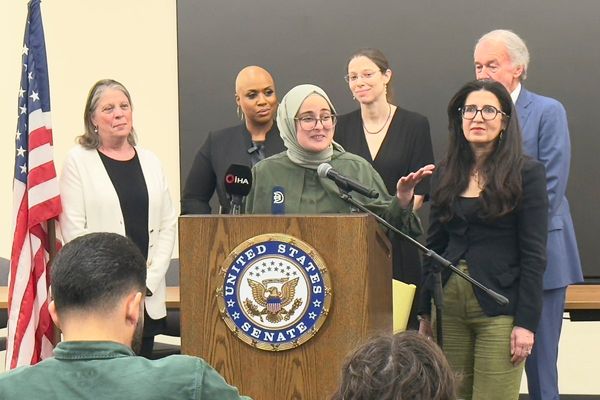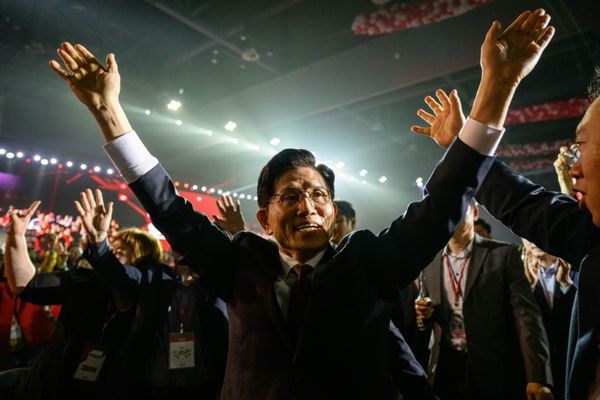
Philip Hensher’s Ondaatje prize-winning Scenes from Early Life (2012) was a strange book. Ostensibly the lightly fictionalised story of his husband’s childhood, it was as much about the birth of a nation as the life of a man; or rather, perhaps, it showed how the two are often inextricable. To have been born in Bangladesh in 1970 was to be immersed in a struggle in which it was necessary to take sides. One of the themes that runs through Hensher’s latest novel, The Friendly Ones, is the staggering ignorance in Britain of the 1971 Bangladeshi genocide, and the book shows how the country’s brutal and divisive war with Pakistan left its traces down through generations, both at home and in the diasporic community.
The Friendly Ones is a novel of reflections. It opens with a party: Nazia, Sharif and their children have moved into a well-to-do street in Sheffield. They have laid on a spread to celebrate their arrival – “pork pies and samosas and Cornish pasties and cake” – and members of the extended family are descending from all corners of England. A neighbour, Hilary Spinster, a recently retired doctor, is pruning the tree that leans over into Nazia and Sharif’s garden. The fence that separates the two families swiftly becomes freighted with meaning, particularly when tragedy threatens and Hilary leaps over it to save the day.
The first half of the novel deals largely with Hilary and his family in the aftermath of his wife Celia’s death. The narrative voice is a wonderfully Victorian-feeling omniscient third-person that cosies up to first one character, then another, gently nudging the reader’s partiality. We step in and out of the lives of each of Hilary’s four children – Leo, Blossom, Lavinia and Hugh – learning of their successes and failures, the way that early events have shaped the adults they become. There’s the excruciating story of Leo’s brief time at Oxford; Blossom’s attempt to fashion herself and her equally middle-class husband into landed gentry; there’s Hugh’s early forays into acting and Lavinia’s struggles with a London life of lodgers and unreliable staff. These scenes are rangy and gripping, and often very funny.
Hensher has always had a gift that taps into one of the essential writerly paradoxes: the more specifically you describe something, the more universal it will appear to the reader. Hensher’s writing enchants the paraphernalia of life, imbuing everyday objects with special meaning by describing them with extraordinary precision. Scenes from Early Life was remarkable partly because it used the same method to bring 1970s Dhaka vividly to life, plunging the reader deeply into the quiddity of the objects that made up that world. When The Friendly Ones moves its action to “Bangla Desh” – the original name for the country – in the second half of the novel, the Dhanmondi home of Sharif and Nazia in the time leading up to independence will feel familiar to those who read Hensher’s earlier book.
The “Friendly Ones” of the title are those who, like Sharif’s brother-in-law, Mahfouz (“a murderer and the friend of murderers”), attempt to derail the revolution, informing on agitators and intellectuals. One of the things this novel asks is what is meant by “family”, and here we see in one family the full range of political positions, from Mahfouz’s collaboration to Sharif’s intellectual resistance to Sharif’s brother Rafiq’s armed struggle. The scenes in Bangladesh are powerfully affecting and full of drama and suspense – an education for the western reader about the horrors of this forgotten war. When, later, Sharif is called a “Paki” by a group of Sheffield schoolboys, it’s easy to see why he takes such particular offence. “Do you know what I am? My country was Bangladesh. I have more reasons to hate the Pakistanis than you do.”
The Friendly Ones ends with another party, this time Hilary’s 100th birthday. It’s a kind of leave-taking as we recognise how far we have travelled with these two neighbouring families, how intimately we know them. This is a profoundly generous and good-hearted book, one that leaves you missing its characters as you would fondly remembered friends. Hensher is one of our most gifted novelists and this is certainly his best novel yet.
• The Friendly Ones by Philip Hensher is published by 4th Estate (£14.99). To order a copy for £12.74 go to guardianbookshop.com or call 0330 333 6846. Free UK p&p over £10, online orders only. Phone orders min p&p of £1.99







